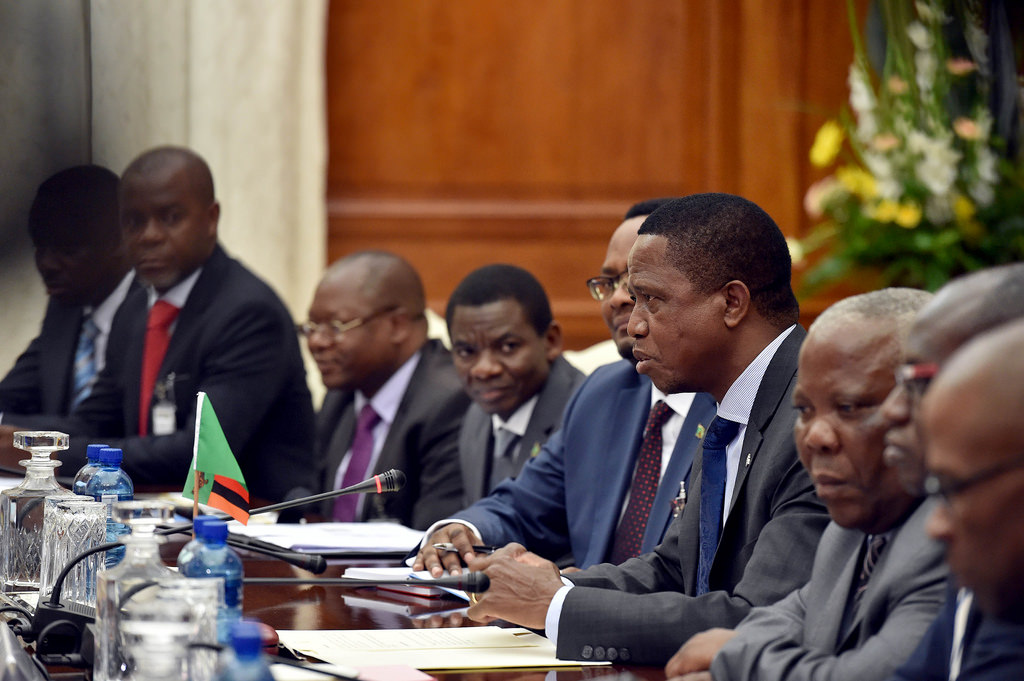Zambia’s government has put itself between the proverbial “rock and a hard place” after it announced that it will further subsidize fuel prices risking the ire of the International Monetary Fund with whom they have been discussing a financial bailout before the upcoming August’s elections.
The finance ministry removed a 16% value-added tax on gasoline and diesel prices from Jan. 1, which it said was necessary to avoid increases at the pump. The IMF opposes subsidies and that could prove to be a stumbling block in the government’s talks for assistance from the Washington-based lender.
The tax removal could also jeopardize discussions with holders of $3 billion in Eurobonds as they have demanded an IMF deal as a condition for agreeing to a restructuring of the debt. Zambia became Africa’s first pandemic-era sovereign debt default after missing an interest payment for one of its Eurobonds in November.
Zambia’s $1 billion of Eurobonds due in April 2024, closed at 54.918 cents on the dollar in London on Friday, up 0.4% on the day and 2.1% stronger since the beginning of the year.
The copper producing nation hasn’t changed its fuel pump prices since December 2019, even as its currency has lost more than one-third of its value against the U.S. dollar, eclipsing the drop in oil prices over the same period. The government already owed suppliers $727 million in arrears by Hune.
Bottom of Form
“The dire fiscal position suggests that the zero-rating may be a pre-election ploy, prone to reversal as government funding lines run dry,” Irmgard Erasmus, senior financial economist at NKC African Economics in Paarl, South Africa said of the ruling Patriotic Front’s decision.
The considerable concessions the IMF will require for a deal “run counter to its political survival strategy with some time still to go before the August poll.”
Cutting or removing subsidies and a wage freeze for government workers could be critical for successful talks with the IMF, according to Chibamba Kanyama, a Lusaka-based economist who was previously a communications adviser with the lender. Civil servants won an 8% pay rise effective this month.
“The IMF definitely will be concerned,” said Kanyama. “I know the IMF is already raising a flag — a red flag — right now.”
President Edgar Lungu faces a tough re-election bid, and subsidy cuts and wage freezes will be a difficult sell to citizens. He narrowly beat opposition leader Hakainde Hichilema in the last two polls, though the opposition refused to accept the results citing electoral fraud.
Zambia has failed in numerous attempts since at least 2014 to win funding from the IMF, but Erasmus still thinks there’s a 60% chance the government can secure a deal by the end of the year.
“Securing a formal IMF program will play a central role in relieving tensions between creditors,” she said. “However, in the near term, this courting of the fund will come at a high political cost.
The most salient risk to the timely agreement to a fund program is refusal by government to surrender its political agenda ahead of a tight electoral race.”

